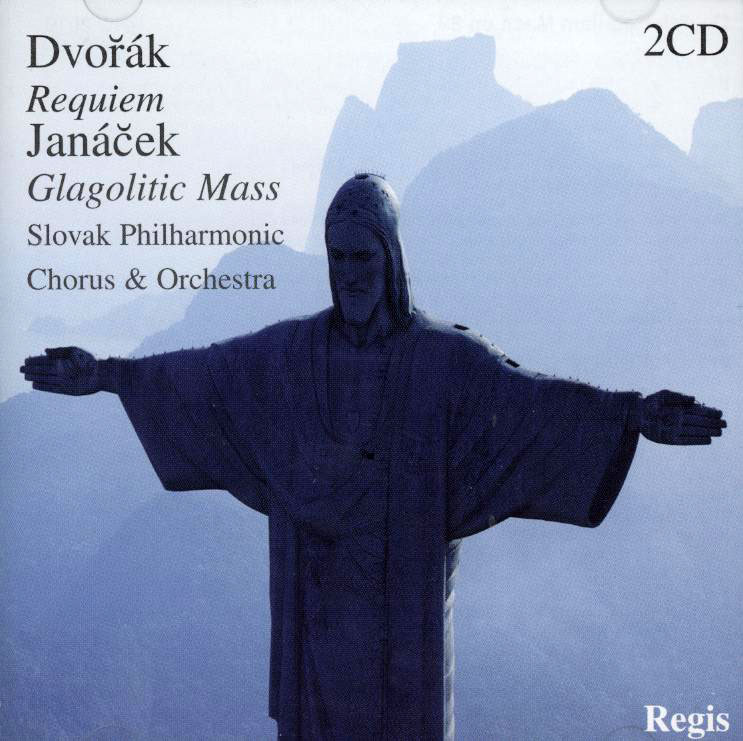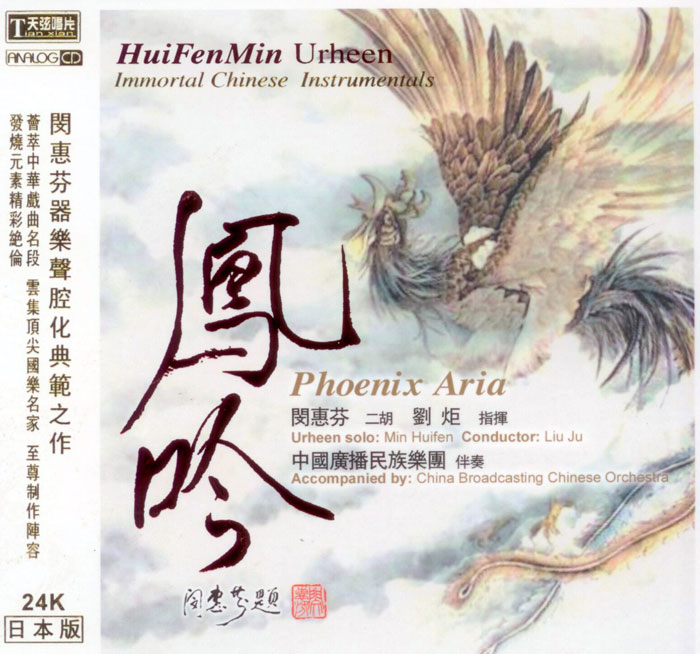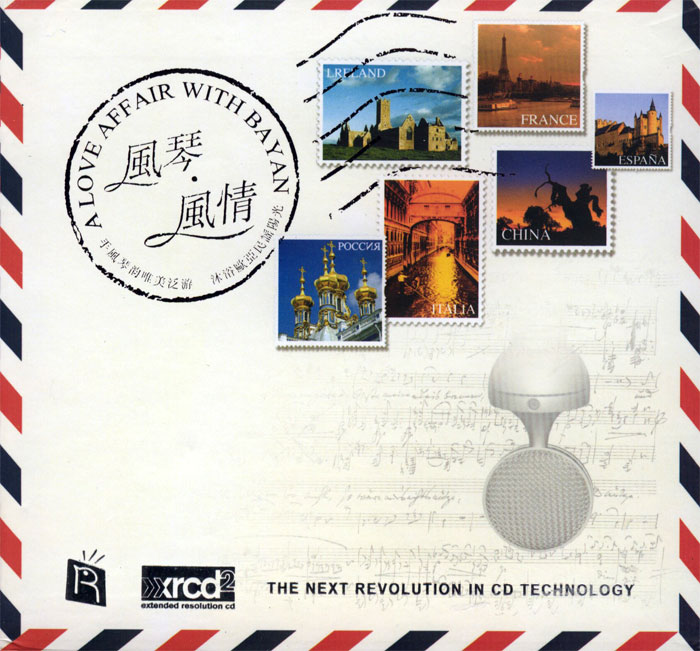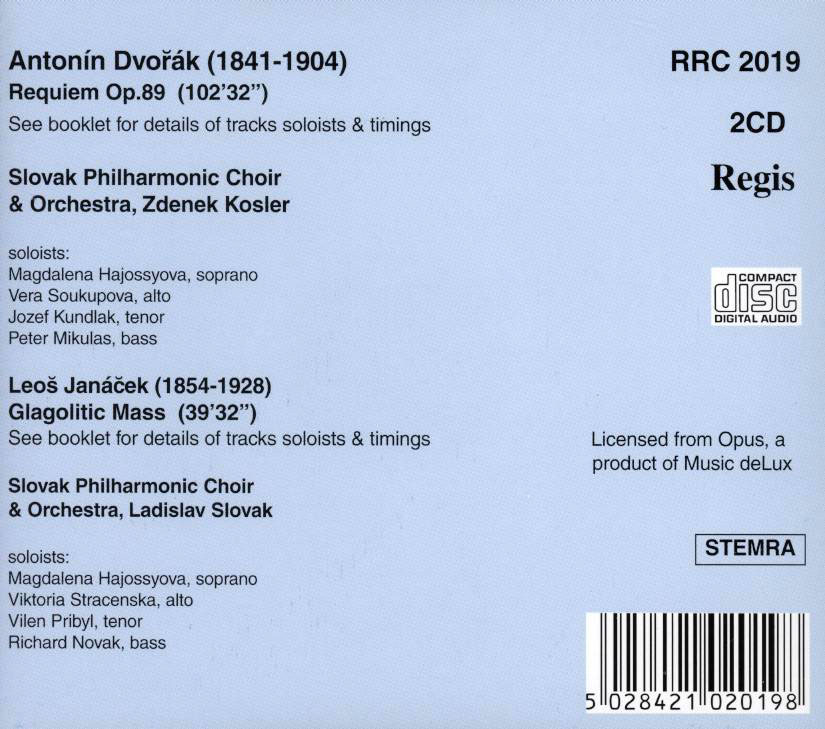Logowanie
Dlaczego wszystkjie inne nie brzmią tak jak te?
SpeakersCorner - OSTATNIE!!!!
RAVEL, DEBUSSY, Paul Paray, Detroit Symphony Orchestra
Prelude a l'Apres-midi d'un faune / Petite Suite / Valses nobles et sentimentales / Le Tombeau de Couperin
Samozapłon gwarantowany - Himalaje sztuki audiofilskiej
PROKOFIEV, Stanislaw Skrowaczewski, Minneapolis Symphony Orchestra
Romeo and Juliet
Stanisław Skrowaczewski,
✟ 22-02-2017
BARTOK, Antal Dorati, Philharmonia Hungarica
Dance Suite / Two Portraits / Two Excerpts From 'Mikrokosmos'
Samozapłon gwarantowany - Himalaje sztuki audiofilskiej
ENESCU, LISZT, Antal Dorati, The London Symphony Orchestra
Two Roumanian Rhapsodies / Hungarian Rhapsody Nos. 2 & 3
Samozapłon gwarantowany - Himalaje sztuki audiofilskiej
Winylowy niezbędnik
ClearAudio
Cartridge Alignment Gauge - uniwersalny przyrząd do ustawiania geometrii wkładki i ramienia
Jedyny na rynku, tak wszechstronny i właściwy do każdego typu gramofonu!
ClearAudio
Harmo-nicer - nie tylko mata gramofonowa
Najlepsze rozwiązania leżą tuż obok
IDEALNA MATA ANTYPOŚLIZGOWA I ANTYWIBRACYJNA.
Wzorcowe
Carmen Gomes
Celebrating the art and spirit of music - vol. 5 - Reference Songs
- CHCECIE TO WIERZCIE, CHCECIE - NIE WIERZCIE, ALE TO NIE JEST ZŁUDZENIE!!!
Petra Rosa, Eddie C.
Celebrating the art and spirit of music - vol. 3 - Pure
warm sophisticated voice...
SAMPLER - STS DIGITAL, Gregor Hamilton
Celebrating the art and spirit of music - vol. 2 - Love songs from Gregor Hamilton
...jak opanować serca bicie?...
SAMPLER - STS DIGITAL
Celebrating the art and spirit of music - vol. 1 - Leonardo Amuedo
Największy romans sopranu z głębokim basem... wiosennym
Lils Mackintosh
Celebrating the art and spirit of music - vol. 4 - A Tribute to Billie Holiday
Uczennica godna swej Mistrzyni
DVORAK, JANACEK, The Slovak Philharmonic Orchestra, Zdenek Kosler
Requiem Opus 89 // Glagolitic Mass

- The Slovak Philharmonic Orchestra - orchestra
- Zdenek Kosler - conductor
- DVORAK
- JANACEK
These two works make stylistically contrasting disc-fellows. The Dvorak has its origins in British oratorio tradition. It was written for the 1890 Birmingham Festival. The Janacek blows away the Victorian dust and is ignited by flaming fervour and mysticism. The Requiem has its moments as we would expect from Dvorák - a master lyricist. The Sanctus is one of those moments; the tenor line with its strolling pace echoed by the choir and other soloists until all takes flight in a Rex Tremendae climax. The Requiem is uneven. However it receives some wonderfully persuasive illumination from the Slovakian players and singers and I recommend it very strongly to Dvorakians already captivated by St Ludmilla and The Spectre's Bride. The very same listeners should try Stanford's Requiem also premiered at Birmingham but seven years after the Dvorák. The Janacek throws open the doors and sings of open air exaltation. Its travelling companions are the Delius Mass of Life and Requiem and the Mahler choral symphonies (try the string writing in Vruju); also The Rite of Spring (in Agnece Bosij). Among Janacek's own output those fanfares most readily conjure memories of Sinfonietta. The recording is lively and life-like. While the work is one of Janacek's old age the work is struck through with the most vivid and musical of effects. There is no doubt that the work benefits from the locale and artists. Rattle's EMI recording, while very fine orchestrally, lacks the desperate beauty of the Slovakian voices (listen to the soloists in Svet). If you sample the singing in Slava you will also see what I mean. The precise ferocity of the cries of 'Amin' is a joy. I still favour the rather antiquated sounding Ancerl recording on Supraphon but the Slovakians are amongst the best of the modern performances (e.g. Jilek on Supraphon). The Mackerras Supraphon CD, often venerated, and admirable in many respects is compromised by the vulnerability of Söderström's vibrato. The 1978 recording (I date this from other sources) is pretty good. I take issue with Regis over their failure to provide discographical information and texts/translations. It would have been good to know about recording venues and session dates. On the positive side this is a very fine coupling indeed and is easily recommendable at its bargain price. Reviewer Rob Barnett

























